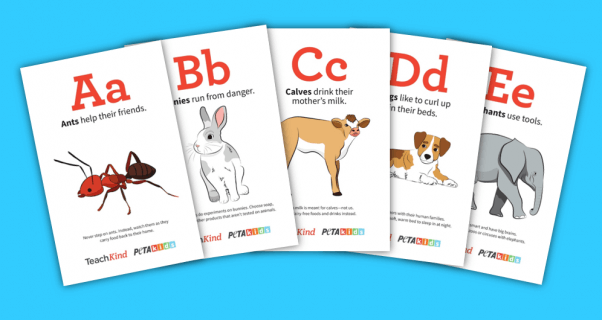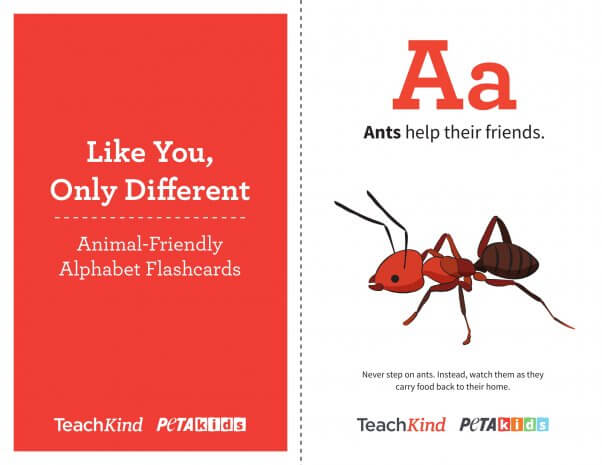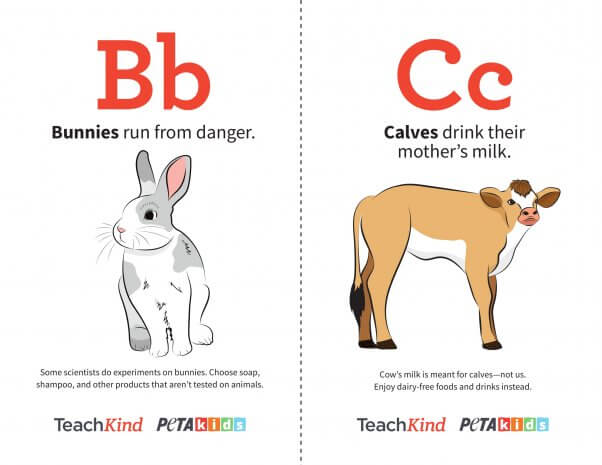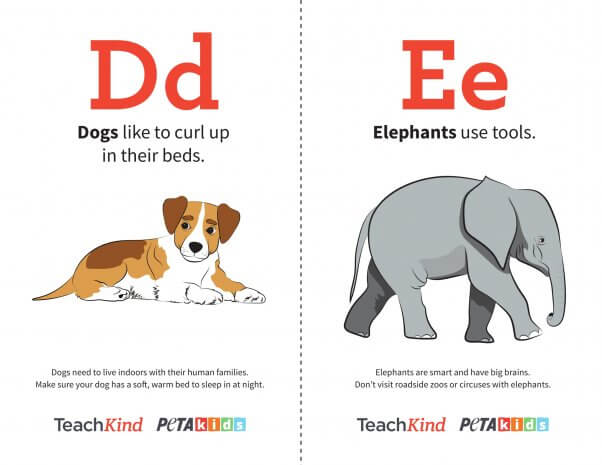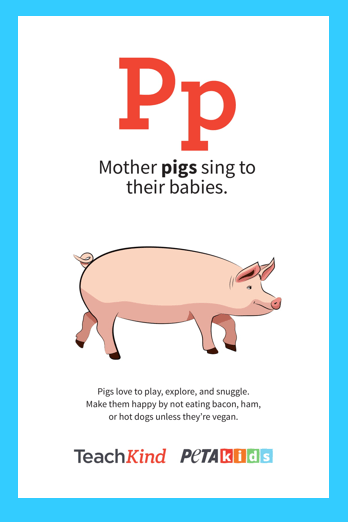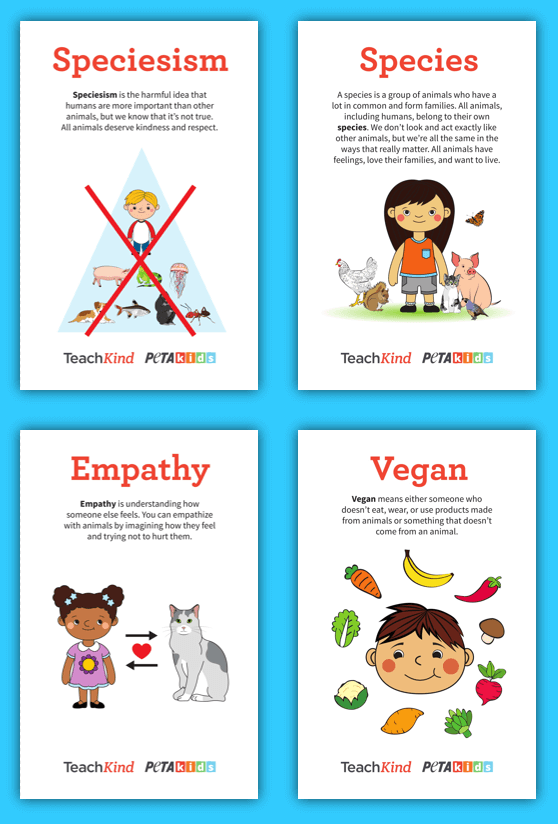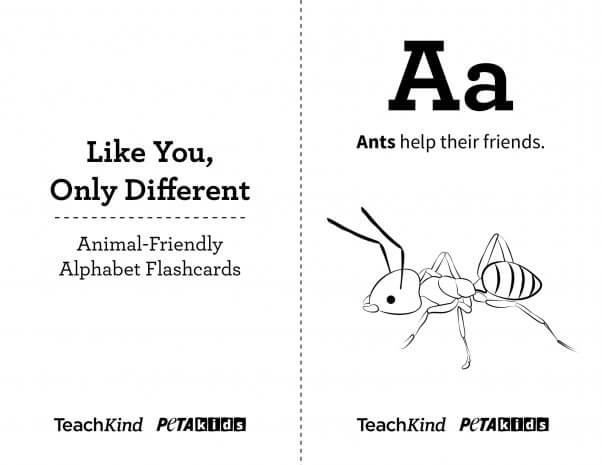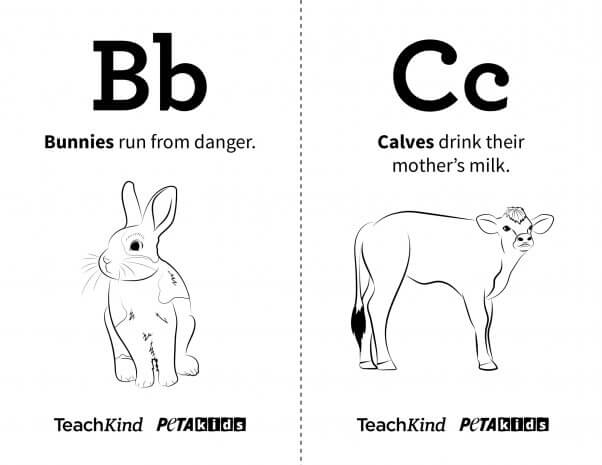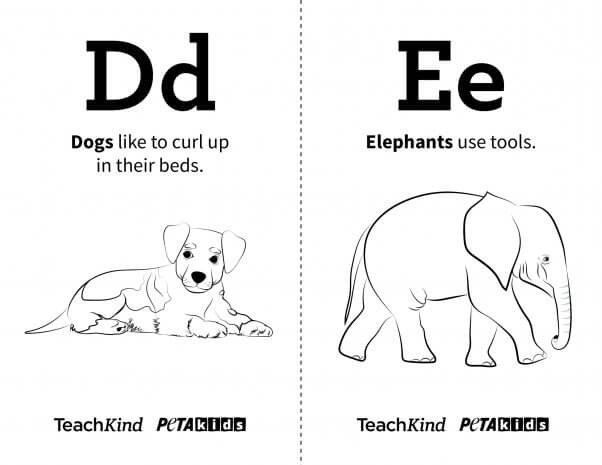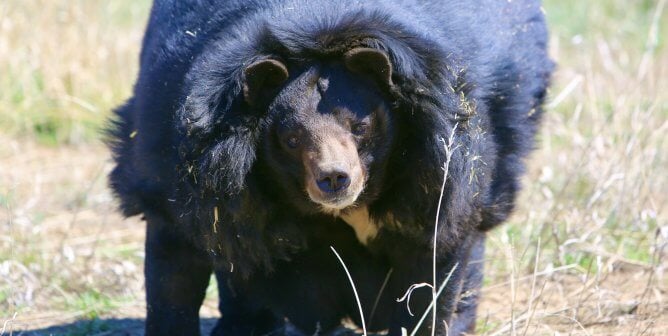TeachKind’s ‘Like You, Only Different’ Alphabet Flashcards
Just like humans, other animals love and nurture their young, get frustrated when they don’t have enough mental stimulation, and want to live free from harm. Many animals are capable of solving problems, anticipating the future, learning from past mistakes, recognizing old friends, showing appreciation to those who’ve helped them, enjoying music, communicating with each other, and showing empathy for others.
Yet humans often choose to focus on what sets us apart from other animals, using our differences as a means of justifying violence toward them. This is bullying behavior. Celebrate the striking similarities between all living, feeling beings and promote compassion for animals with TeachKind’s “Like You, Only Different” Flashcards.
Simply print, cut, and laminate these fun flashcards and use them to practice beginning sounds, sight words, sentence structure, and more—while highlighting the qualities that all animals share with one another. Each flashcard includes a full-color illustration, a complete sentence about an animal, and suggestions for improving the life of that animal.
In addition to a card for each letter of the alphabet, the set includes four bonus flashcards that discuss the words “speciesism,” “species,” “empathy,” and “vegan” in kid-friendly terms so that you and your students can have meaningful discussions about treating everyone with kindness and respect year round.
Download TeachKind’s ‘Like You, Only Different’ Flashcards!
Click to Download the Full Set!
How to Use Your Flashcards
Whole Group
Hold up each flashcard, go over the letter and sound, and read the sentence aloud, pointing to each word as you say it. Have students repeat the letter and its corresponding sound. If they’re able to, have students read the sentence aloud with you. Then ask some empathy-building questions. Here’s an example:
- What sound do you hear at the beginning of the word “pig”?
- What letter does “pig” begin with?
- Why do you think mother pigs sing to their babies?
- Does anyone in your family sing to you? If so, how does it make you feel?
Partners and Individuals
In pairs or individually, have students read (or take turns reading) each sentence aloud, pointing to each word as they say it. For each card, have students ask themselves, “Do humans also do this?” Sort the cards into two piles based on the answer.
Vocabulary Building
Hold up each bonus flashcard and read the word and the sentence(s) aloud. Have students repeat the word to you and discuss each definition using the following questions and talking points:
- For the ‘Species’ Flashcard
- Explain that a species is a group of animals who have a lot in common and form families. For example, all elephants have long trunks, big floppy ears, and gray skin. They can communicate with each other and form families called “herds.”
- Ask students what all animals have in common. (Answer: We all require food, water, and shelter. We also need our families, who protect us, help us, and give us love and affection.)
- For the ‘Speciesism’ Flashcard
(Use your professional judgment to determine whether you should teach your students the word “speciesism” or just discuss the concept with regard to bullying.)
-
- Ask students to consider what special skills some animals have that humans don’t. (Possible answers: Some animals can run at high speeds, hold their breath underwater for long periods of time, lift heavy things, or fly.) Point out that while humans have tools and technology that allow them to do some of these things, too, animals can do them all by themselves.
- Ask students to consider some of the things that people get bullied for. (Possible answer: Someone might be bullied for looking or behaving differently from others.)
- Ask students if they think other animals are bullied for looking and behaving differently from humans. If you think it best, explain that this form of bullying is called “speciesism.” (Answers will vary. Guide students’ thinking by providing examples. Point out that some people squash ants and other insects because they don’t understand that this hurts them.)
- How can we help end speciesism? (Answer: Students should always tell an adult when they learn that an animal is being bullied.)
- For the ‘Empathy’ Flashcard
- Ask students to tell you about a time when they had empathy for someone else (or could imagine how someone else was feeling).
- Ask students to tell you about a time when they wished someone else had had empathy for them.
- Discuss the Golden Rule of treating others the way you wish to be treated and the importance of extending this consideration to other animals. (Note: Order TeachKind’s free empathy-building elementary curriculum kit “Share the World” to continue your discussion of the Golden Rule.)
- For the ‘Vegan’ Flashcard
- Explain that going vegan is one of the many ways we can all help animals every single day.
- Point out that in one year, a vegan can save almost 200 animals!
- Tell students that they’re probably already eating lots of vegan foods without even knowing it—peanut butter and jelly sandwiches, spaghetti with tomato sauce, and beans and rice are just a few.
- Share some of your favorite vegan foods with students.
Bonus Resource
TeachKind has also created a more student-friendly set of the above flashcards. The cards in this set feature less text, making them easier to read, and are black and white so students can color them in. Have students use this set to follow along during a teacher-led lesson and to practice reading independently.
Download the Student-Friendly Set!
Click to Download the Full Student-Friendly Set for Free!
Check out our ready-to-use flashcards for your classroom. Grab a set today, available in the PETA Shop.
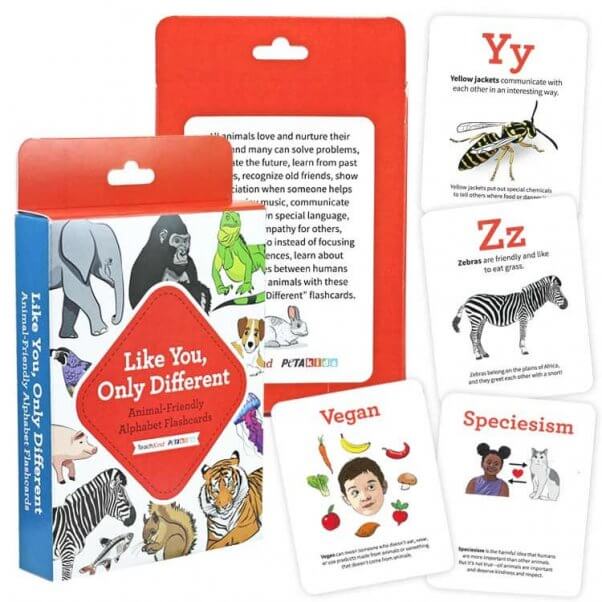
Want more printable freebies? Sign up for TeachKind News to have our latest humane education content sent straight to your inbox!
By submitting this form, you’re acknowledging that you have read and agree to our privacy policy and agree to receive e-mails from us.

